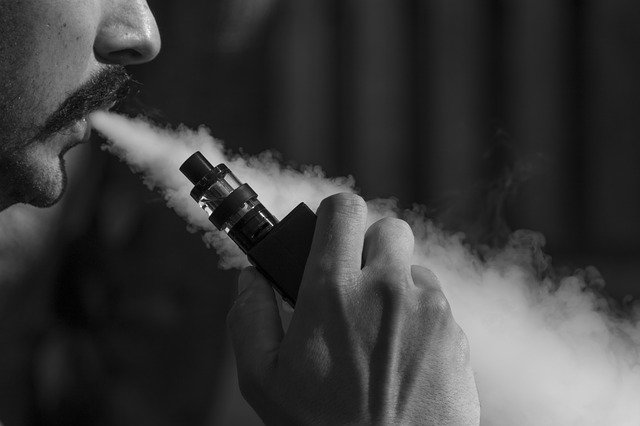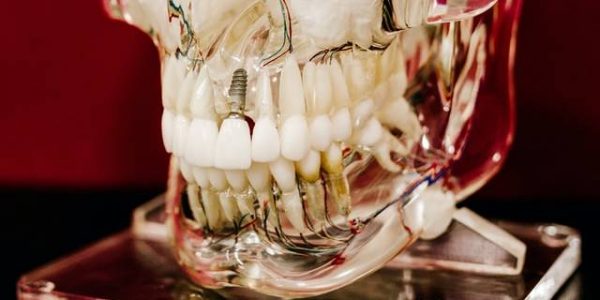How Vaping Affects Your Teeth
E-cigarettes or vaping entered the market in 2003. It started getting traction around 2010 and became really popular as an alternative to smoking. However, there is a growing concern among many because of the misconceptions around it. A lot of teens and adults use e-cigarettes or vapes to look ‘cool’ without knowing its risks.
In this article, we’ll be tackling how vaping affects your teeth and what you can do to improve your overall oral health.

What is Vaping?
Vaping refers to the use of an electronic device (referred to as ‘vape’ or ‘e-cigarette’) that uses vaping liquid (e-liquid or e-juice) to heat up and turn it into an aerosol (vapor) that usually contains nicotine, flavorings, and chemicals that help make vapor. Similar to smoking, the vapor is inhaled into the lungs and expelled through the nose or mouth.
Vaping devices can come in different shapes, colors, and sizes. They can look like actual cigarettes, pen-types, box mods, and pods. Some of these have cartridges that contain the vaping liquids that are reusable and some are disposable.
How common is vaping?
In recent studies, 1 in 20 US adults uses e-cigarettes. [1] In 2021, it’s estimated that more than 2 million US middle school and high school students were currently using e-cigarettes. [2] Most of them were using flavored e-juices or e-cigarettes.
What are Inside Vape Liquids?
The contents of a vaping liquid contain propylene glycol (used to make artificial smoke), vegetable glycerine (odorless, colorless, and has a slightly sweet taste), flavorings, and the option to have nicotine. Some vaping liquids may contain harmful chemicals that can cause cancer, nickel, tin, lead, diacetyl (which can be linked to lung diseases), and very small particles that are dangerous if inhaled deep into the lungs.
There are also vaping liquids that contain Tetrahydrocannabinol (THC), which is a chemical compound highly found in marijuana that gives you a high effect and is addictive.
Is Vaping Healthier than Smoking Cigarettes?
Technically, yes – but it doesn’t mean that vaping is safe. Vaping or e-cigarettes have been an alternative for people who smoke.
E-cigarettes don’t contain tobacco, and the aerosol produced contains less toxic chemicals than smoke coming from regular cigarettes that have over 7000 deadly chemicals. BUT that doesn’t mean that vaping is harmless.
It is a misconception that e-cigarettes are healthier than regular cigarettes because it still poses similar health risks to smoking tobacco.
Health Risks of Vaping
Vaping liquid contains nicotine which is highly addictive and contains harmful chemicals that can affect your health. It is also harmful to the brain development of adolescents and is very dangerous for pregnant women and their developing babies. Other health risks include:
- Cancer
- Pneumonia
- Popcorn Lung
- Heart attacks
- Stroke
- Increased blood pressure and heart rate
- Seizures
- Oral health issues

What are the Dental Effects of Vaping?
By now, we know that smoking is bad for our health, and so is vaping. Not only is it dangerous to our bodies, but also to our mouths. One of the most overlooked effects of vaping is on our oral health which could cause lots of problems.
Gum Diseases
Vaping can lead to having gum diseases. Nicotine is a vasoconstrictor, meaning it affects the blood vessels on your gums resulting in poor blood circulation to your gums and teeth. This makes your gums receive less oxygen and nutrients to stay healthy and strong, which makes them susceptible to infections and can lead to gum recession.
Vaping can also make your gums irritated causing inflammation, tenderness, and swelling. This can lead to gingivitis, periodontitis, tooth sensitivity, and other oral health issues.
Drying of the Mouth and Cavities
Vaping causes you to have a dry mouth. Vaping products contain propylene glycol which has water absorption properties. This absorbs the moisture out of your mouth’s tissues and throat. Nicotine also reduces the saliva in your mouth. Saliva plays a crucial role in cavity prevention because it keeps your mouth moist which helps prevent bacteria and build-up plaque that will lead to tooth decay. Having a dry mouth can also lead to mouth sores and bad breath.
Teeth Grinding and Teeth Damage
Nicotine that’s inhaled while vaping is considered a muscle stimulant. This promotes teeth grinding, which is called bruxism. Grinding can occur during the day while awake or at night while you’re asleep and you won’t even notice it. Grinding or clenching of teeth can lead to tooth damage and other oral complications.
If you experience teeth grinding at night, you might want to consider getting a nightguard.
Staining of the Teeth
Similar to smoking, vaping can also lead to the discoloration or staining of your teeth. With smoking cigarettes, the nicotine, ash, and tar are responsible for the browning and yellowing of your teeth. Though vaping doesn’t contain ash and tar, it does contain nicotine. But when exposed to oxygen, nicotine turns yellow which will discolor your teeth. Vaping doesn’t stain your teeth as bad as smoking does, but long-term wise it will.
Visiting a dentist for teeth whitening treatment could help with the teeth discoloration or staining.
Tooth Enamel Erosion
Tooth enamel is a hard, outer surface layer covering your tooth, which protects it from tooth decay. It is considered the hardest mineral in the body, even harder than your bones.
One of the main ingredients of vaping liquids is propylene glycol (PG). When vaping, it breaks down into acetic acid, lactic acid, and propionaldehyde, which are bad for your tooth enamel. These acids cause your tooth enamel to break down and leaves your teeth vulnerable to tooth decay and cavities.
There was a study where flavored vape liquids caused the hardness of the enamel to decrease by around 27%, weakening the enamel and becoming more susceptible to mouth bacteria.
How to Care for Your Teeth If You Vape
In the US, vaping is still not considered by the FDA as a smoking cessation aid. Though it is considered by many as a healthier alternative to smoking, the best thing for your health and teeth is to cut back or fully stop vaping, but we understand that it is easier said than done.
If you do vape, then the best thing to do is make sure that you take care of your oral health. The following are ways to care for your teeth:
1. Brush at least Twice daily
Brushing your teeth helps in removing plaque, which can also prevent cavities from building up, and promotes on having better overall oral health.
2. Flossing before bed
Similar to brushing, it is best to floss before you go to bed. It helps remove food particles and plaque while it’s still soft. While you’re sleeping, the teeth are prone to bacteria that feed off the debris throughout the night. So it is best to floss before bed to maintain a good oral health.
3. Drink lots of water
Vaping causes your mouth to dry and can lead to bad breath. You have to make sure that you rehydrate yourself after you vape.
4. Use a low-nicotine or nicotine-free vape liquids
By now, we know that nicotine is addictive and could also impact our health. Choosing a low-nicotine or nicotine-free vape juices can help limit the negative effects of nicotine on our teeth and gums.
5. Visit a dentist on a regular basis
VISIT US FOR YOUR VAPING TEETH IN WALL TOWNSHIP
Now you know how vaping affects your teeth. Get a cleaning and check-up to help you maintain a good oral hygiene. If interested, visit Dr. Avi Israeli of Sage Dental and Spa in Wall, NJ.
You can contact us online or call us by phone to book a consultation!
References:
[1]https://bmcpublichealth.biomedcentral.com/articles/10.1186/s12889-020-09572-x
Sapru, S., Vardhan, M., Li, Q. et al. E-cigarettes use in the United States: reasons for use, perceptions, and effects on health. BMC Public Health 20, 1518 (2020). https://doi.org/10.1186/s12889-020-09572-x
[2]https://www.cdc.gov/media/releases/2021/p0930-e-cigarette.html
Youth E-Cigarette Use Remains Serious Public Health Concern Amid COVID-19 Pandemic. CDC
https://tobaccocontrol.bmj.com/content/23/suppl_2/ii36
Callahan-Lyon PElectronic cigarettes: human health effects Tobacco Control 2014;23:ii36-ii40.
https://www.cdc.gov/tobacco/basic_information/e-cigarettes/about-e -cigarettes.html
Centers for Disease Control and Prevention. 2021. About Electronic Cigarettes (E-Cigarettes). CDC
https://www.cdc.gov/tobacco/basic_information/e-cigarettes/Quick-Facts-on-the-Risks-of-E-cigarettes-for-Kids-Teens-and-Young-Adults.html
Centers for Disease Control and Prevention. Quick Facts on the Risks of E-cigarettes for Kids, Teens, and Young Adults. CDC
https://pubmed.ncbi.nlm.nih.gov/32243711/
Irusa KF, Vence B, Donovan T. Potential oral health effects of e-cigarettes and vaping: A review and case reports. J Esthet Restor Dent. 2020 Apr;32(3):260-264. doi: 10.1111/jerd.12583. Epub 2020 Apr 3. PMID: 32243711.
https://doi.org/10.1371/journal.pone.0203717
Kim SA, Smith S, Beauchamp C, Song Y, Chiang M, et al. (2018) Cariogenic potential of sweet flavors in electronic-cigarette liquids. PLOS ONE 13(9): e0203717.

